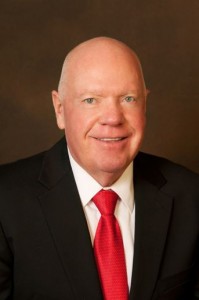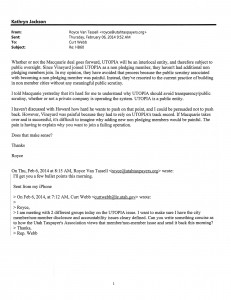- Broadband Bytes for 2014-02-28 http://t.co/7Iabrv6heN ->
- Was the Utah Taxpayers Association behind HB60? A GRAMA request seems to hint at it. #utpol http://t.co/3jepCPsfjp ->
- Is Comcast going to tell you to hit the road when they merge with TWC? http://t.co/lzau9CQ97o ->
- Even if Verizon won't set hard caps for FiOS, good luck trying to use multiple TB per month. http://t.co/pyfk4gNlH2 ->
- Comcast has reached the end of its capacity. http://t.co/6mrcPEHS4G ->
- DDoS attacks are getting worse, faster. http://t.co/tnDx0orJWx ->
- Content providers are starting to get on board with over-the-top live TV. http://t.co/UNn19g6nTe ->
- SB190 is dead this year. #utpol http://t.co/T810wUT3Gy ->
- Holy buckets: up to 20% of your home's value could come from its connectivity. http://t.co/lneuGlNmQp ->
- SB190 dies, HB60 withers on the vine. It's a good year for broadband in Utah. #utpol http://t.co/gqgJ1nt2LZ ->
- Comcast likes to pretend it isn't lobbying even when it is. http://t.co/qrF8sN65Cd ->
- In the mood for good crazy? Agenda 21, poison radio waves, SOCIALISM!… this letter to the editor has it all. http://t.co/bAglndzIOm ->
- Why can't I get service when UTOPIA fiber is very close to my house? http://t.co/FDFco1U9nB ->
- The FCC could start knocking down municipal network restrictions by this spring. http://t.co/2EKqoZBNHZ ->
- Can slow and steady win the fiber race? It's working for Santa Monica. http://t.co/7KSl2GBYqs ->
- Self-congratulatory Comcast thinks meeting its own low standards deserves praise. Um, no. http://t.co/JniLK8M9lb ->
- How to not lose customers: build fiber. http://t.co/oyBLUFebsr ->
- Waitaminute… the legislature has something pro-broadband in the works this year?! #utpol http://t.co/ysy0FV0us8 ->
- Yay! More fiber to the press release! http://t.co/omZiENhGGJ ->
- If Comcast were in competitive markets, it would never be able to get away with this noise. http://t.co/e4pGN1fjt6 ->
- Fiber can handle 4K video. HFC cable plants can't. http://t.co/TBpMTWRaaq ->
- While Utah is stuck asking if we should further restrict munis, Tennessee is rolling back restrictions. #utpol http://t.co/ii0Jbu8H5m ->
- These maps visualize what a lack of competition looks like. http://t.co/kQrGrBCrLH ->
Subscribe
Follow Us!
Upcoming Events
Nothing that I know of. If you know of something upcoming, drop me a line so I can get it posted.
FreeUTOPIA Podcast
The podcast is currently on hiatus.
Visit the Show Page on BlogTalkRadio!Recent Comments
- Ray on FreeUTOPIA! FAQ
- Dolores Hansen Nelson on A Broadband Moonshot for Utah
- Anonymoose on West Valley City announces partnership with Ooma to provide free phone service to all residents
- Jesse on West Valley City announces partnership with Ooma to provide free phone service to all residents
- Jesse on Further UTOPIA Installation Details
Fiber Advocates
Important Sites
Networks
Categories
Tag Cloud
#utpol AT&T Brigham City Broadband Bytes broadband stimulus Broadweave Centerville CenturyLink Comcast competition DOCSIS 3.0 FCC FIOS FTTN google Google Fiber Hulu iProvo Layton Macquarie Mstar Netflix Nuvont Orem Perry Podcast Prime Time Communications Provo Qwest SAA service providers Sprint Time Warner Tremonton U-CAN UIA Utah Taxpayers Association UTOPIA Veracity Veracity Networks Verizon VoIP West Valley City WiMax XMissionCopyright Notice

This work is licensed under a Creative Commons Attribution Noncommercial Share Alike 3.0 United States License.










